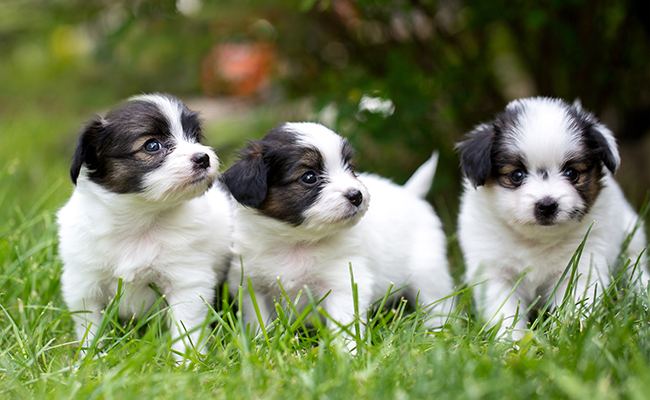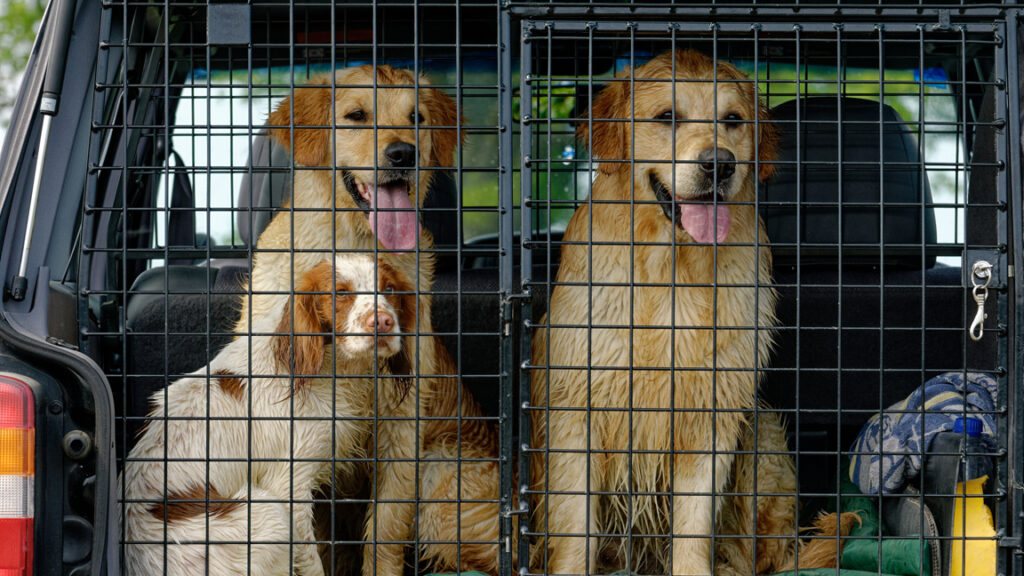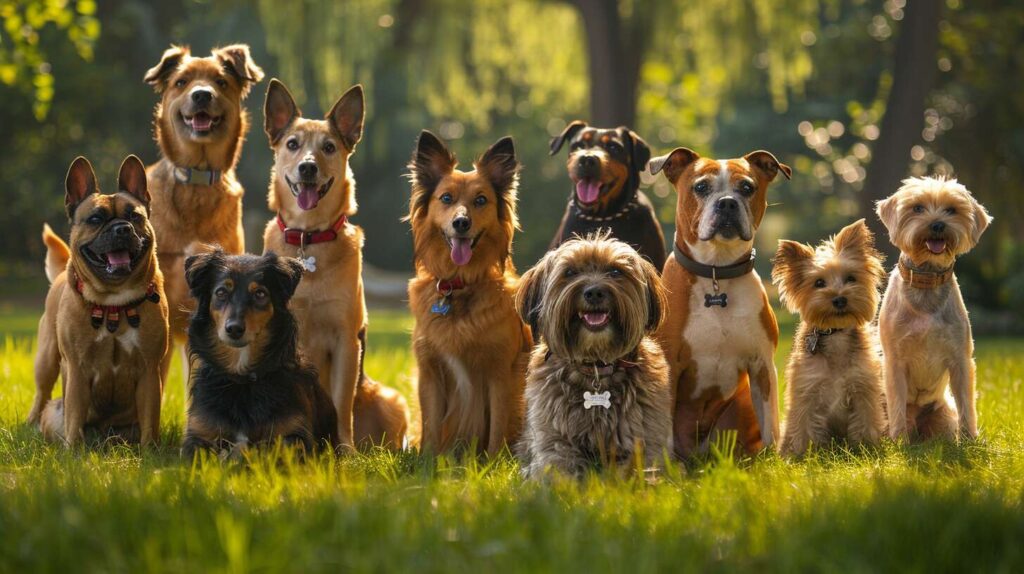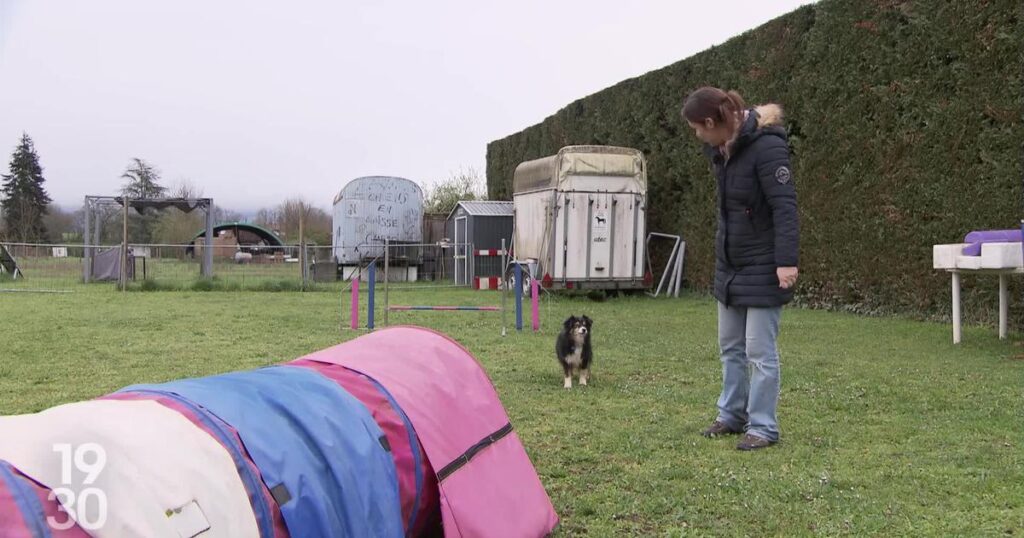
The legal age to adopt a puppy is 8 weeks, but it is strongly recommended to wait until the puppy is 10 weeks old. If this delay exists, it is not for nothing since it is the time it takes for mom to instill some rules of life within her reach. Indeed, weaning too early can be a source of behavioral and developmental problems for the puppy. But what does their mother teach them? Why is it important?
The maternal instinct of the dog
Contrary to what one may believe, the maternal instinct is not innate in the female dog. This depends on several factors such as her age, her state of health and quite simply external events that may occur during her pregnancy or giving birth. The number of puppies or litters also influences its behavior. It thus happens that a female dog who has a first litter (primiparous) can completely lose interest in her babies, for various reasons (udder pain, caesarean section, etc.). And this is then a problem to be tackled, because, firstly, the lives of the puppies are in danger and secondly, if the bitch does not take care of her puppies, she will not have the opportunity to teach them the canine codes necessary for their future life.
The important role of the female dog
Like any mother in the life of a newborn, the mother dog has a very important role for the survival and behavior of her little ones.
The puppy's first weeks
The puppy is born deaf and blind and completely dependent on its mother during its first weeks of life. In the first weeks, the dog's role is to feed her babies, but also to keep them warm. She also helps her puppies to urinate and defecate, by stimulating the perineal area of each of them, since independent elimination is only acquired around the 4 weeks of life of the puppy. The female dog feeds her young until around 6 weeks of age, when food weaning will occur.
During these first weeks, the mother dog will also spend a lot of time licking and cleaning her puppies. This licking is very important since it helps prepare the puppy's immune defenses. Licking her babies also allows the female dog to regulate their temperature. Finally, we often observe the dog nuzzling her puppies in order to turn them over to clean them. All these actions will contribute to the well-being of children and allow them to grow peacefully and have better learning abilities.
From 6 weeks
Very often, it is at this age that the female dog begins to push away her puppies during feeding which becomes painful with the milk teeth and the nibbling of the puppies. It’s time to wean off food. It is a natural process and caused normally by the dog. Depending on the breeds, it can take place a little earlier (4 weeks for large breeds)
It is also the time for the symbolic separation between the dog and her puppies. Give your dog a moment of calm during the meal by giving her a share of her litter. The puppies thus slowly learn to be separated from their mother.
Bites
The role of the dog is very important since it is she who will teach her puppies to control their bites. When puppies start to play with each other (around 4 weeks old), they nip each other. But very often, this degenerates into a fight since not knowing how to control their jaws, the bites are painful. The dog intervenes very firmly to stop the arguments. It's actually very surprising when you're not used to seeing that. She threatens them by taking them in her mouth, as if she were biting them. These interventions will allow puppies to learn to control their bites, but also to play without biting. The dog will be less and less forgiving as her puppies grow.
Exploration
From the age of 3 weeks, puppies begin to discover the world and what is around them. The dog plays a calming role here, because the little ones are sometimes surprised by a noise or an object. It is their mother's behavior that will indicate to the puppies whether they can continue to explore or, on the contrary, whether they should stop because there is danger. Most often, the puppy who leaves to explore then returns to his mother so that she can reassure him and then leaves to discover new things. We are talking about star exploration.
The importance of the female dog on the cognitive development of puppies
Studies prove and confirm that the quality, but also the quantity of interactions of puppies with their mother during the immediate postpartum (just after birth), enormously influence the physiological, cognitive and behavioral development of the pups. However, there are differences in results depending on the breed of dogs, but also in relation to their initial function. For example, German Shepherd puppies, intended to work for the military and with a female dog who had high maternal instincts, had the cognitive skills necessary to do their job. Studies carried out on young puppies aged 2 months and in a stressful situation show less convincing results. But as soon as maternal care is there, the puppies' abilities increase. There is therefore no doubt that the role of the female dog and her interactions with her litter influence their cognitive abilities. The socialization period (which begins around 3 weeks of age and lasts until 10-12 weeks) is undoubtedly the most important. Puppies are in fact more mature and therefore more sensitive to the effects of interactions with their mother, whether positive or negative (but also with their brothers and sisters, other dogs they may meet and of course human beings). of their entourage). Hence the importance of not taking a puppy away from its mother too quickly.
Why does a dog reject one of her puppies?
It happens that a dog takes care of her litter perfectly well, but rejects one or two puppies. Most often, it is because the mother has detected a birth problem which weakens her little one and she has understood that he will only survive a few days. The puppy may also be carrying a serious illness. This may then seem cruel, but in dogs, it is the survival instinct: the female dog will favor healthy babies and leave the “intruder” aside.
Of course, there's nothing stopping you from taking him to the vet for a diagnosis, but even if you manage to find a solution, this is a puppy that the mother will still reject. You will then have to ensure bottle-feeding yourself.
What to do if the dog doesn't take care of her babies?
If maternal abandonment is rare, it sometimes happens that the female dog refuses to take care of her litter. This puts the lives of the puppies in danger, not to mention that without her intervention, they will not learn certain canine codes, which are important for their future life.
The reasons
There are several reasons why the dog refuses to take care of her puppies:
- she is a primiparous dog, in other words, this is her first litter and her maternal instinct has not yet developed
- the dog has undergone a cesarean section: rejection is common in this situation, because the bitch has not had the opportunity to lick her babies to clean them, without forgetting that a surgical intervention includes disinfection of the udders and therefore the absence of calming pheromones which are located in this location.
- there are too many babies: if the litter has more than 8 puppies, it is quite difficult for the female dog who can then become exhausted taking care of her little ones
- The dog has inflammation of the mammary glands, which makes nursing very painful. We talk about mastitis or mastitis
How to react ?
You should not scold the dog, who necessarily has a good reason for not taking care of her puppies or rejecting one of them. Remember that she also needs care and attention. First, call the veterinarian so they can find the cause of the rejection. Some can be resolved, such as the fact that your dog may be suffering from separation anxiety from you, her owner. In this case, move the farrowing box closer to you, then things should be back to normal. Or, on the contrary, she needs more peace and quiet and in this case, you need to be able to place her in a place in the house where she will be quiet to take care of her little ones.
If, however, the reason is medical (mastitis or others), you will then have to take over with the little ones, ensuring feeding, warming (between 29 and 30° for the 7 days following birth) and the cleanliness of the room. box. It is best for little ones to be in a quiet place. The dog must be able to see her babies if necessary because it is not impossible that she will take care of them afterwards.
The dog therefore has a very important role with her puppies: emotional management, self-control, autonomy… she teaches all this to her puppies during the first weeks of their life. This is why it is recommended to wait 10 weeks for puppies to be completely weaned before any adoption.




